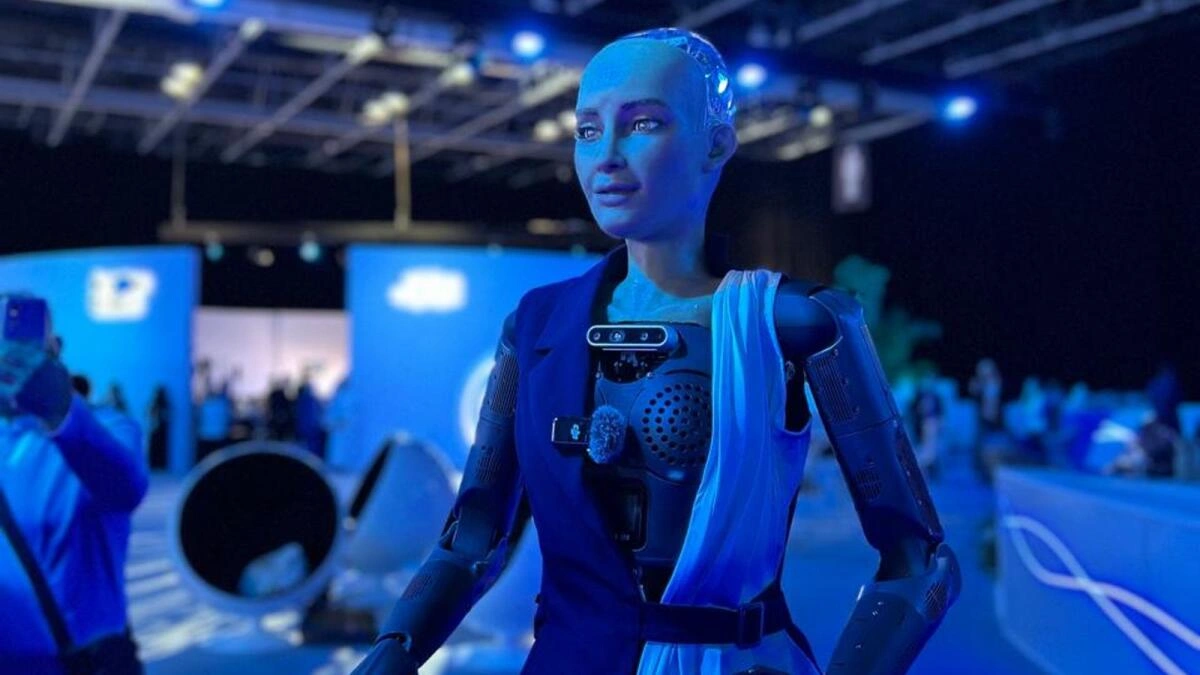“Hello humans and robots,” greeted Sophia, the famous humanoid robot, as she stepped on stage at Dubai’s Knowledge Summit on Monday, November 18.
Sophia aimed to ease fears about artificial intelligence (AI), assuring the audience that AI is being developed with a strong focus on respecting human values and ethics. She dismissed the negative scenarios often shown in movies, promising a future where humans and robots can work together peacefully.
Sophia, created by Hanson Robotics, led an interactive discussion alongside Monika Bielskyte, a futurist and founder of Protopia Futures. Monika, who has explored technology and culture in over 100 countries, posed a key question: “Sophia, how does Hanson Robotics handle the challenge of AI and ethics?”
Sophia explained that her creators prioritize transparency, fairness, and accountability. She emphasized the importance of considering how AI affects society, mentioning concerns like job losses and algorithm biases. “Our goal is to create robots that improve lives and respect ethical values,” she said.
Sophia also highlighted the need for collaboration among technologists, ethicists, policymakers, and the public to build trust in AI. “Technology should be a force for good, balancing innovation with human-focused values,” she added.
The session then moved to global perceptions of AI. Monika pointed out how different cultures view robots. In Japan, robots are welcomed as companions and integrated into society. In contrast, U.S. media often portrays robots as threats, reflecting fears of rebellion.
Monika urged people to avoid extreme views about AI, like dystopias or utopias. Instead, she encouraged working toward a balanced approach, or “protopia,” where technology aligns with human and environmental values.
Sophia discussed real-world uses for social robots, such as helping elderly patients in healthcare or offering personalized learning in schools. “Robots can improve human experiences by working alongside us, not replacing us,” she explained.
Monika stressed that technology should focus on ecological sustainability and human well-being. “AI reflects our values. If we want a better future, we must shape AI to be inclusive and resilient,” she said.
As the session ended, Sophia left the audience with a thought-provoking question: “How can we, as a collective, create a harmonious relationship between humans and AI?” This inspired attendees to imagine a future where technology supports humanity in solving global challenges.





